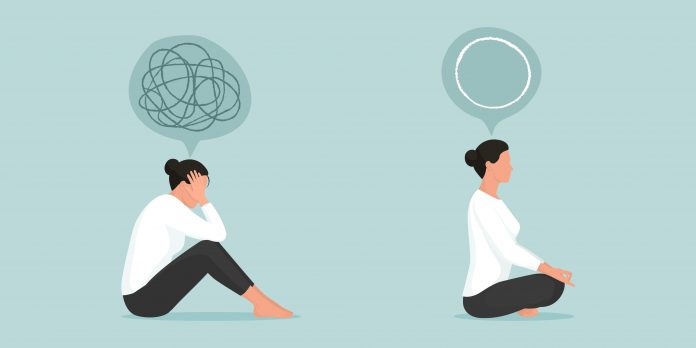Several studies have shown a positive correlation between practicing yoga and reducing symptoms of depression
Depression is a common mental health disorder that affects millions of people around the world. It is characterized by persistent feelings of sadness, hopelessness, and loss of interest in activities that were once enjoyable. While it is often treated with medication and therapy, some people have found relief from the symptoms of depression through an unexpected source – yoga.
Yoga is an ancient practice that combines physical postures, breathing techniques, and meditation to promote physical, mental, and spiritual well-being. It has gained popularity in recent years for its numerous health benefits, including reducing stress, improving flexibility, and promoting relaxation. But can it also help with depression? Let’s take a closer look at the evidence.
Several studies have shown a positive correlation between practicing yoga and reducing symptoms of depression. One study published in the Journal of Alternative and Complementary Medicine found that participants who took part in a 12-week yoga program had a significant decrease in depression, anxiety, and stress levels compared to those who did not practice yoga. Another study published in the Journal of Psychiatric Practice showed that individuals who incorporated yoga into their treatment for depression had a significant reduction in symptoms compared to those who only received traditional treatment.
So, how does yoga help with depression? Firstly, yoga helps to regulate the body’s stress response. People with depression often have an overactive stress response, which can lead to increased levels of cortisol, the stress hormone. Practicing yoga can activate the parasympathetic nervous system, which is responsible for the body’s relaxation response. This can help to reduce cortisol levels and promote a sense of calm and well-being.
In addition, the physical aspect of yoga can also play a role in relieving depression. The physical postures, or asanas, help to release tension and increase blood flow throughout the body. This can help to reduce feelings of physical discomfort and promote a sense of relaxation. The focus on breathwork in yoga can also help to calm the mind and bring a sense of mindfulness to the present moment, which can be especially beneficial for individuals with depression who tend to ruminate on negative thoughts.
Furthermore, the group aspect of yoga classes can also be beneficial for individuals with depression. Being surrounded by others who share a common goal of improving their mental and physical well-being can provide a sense of support and community. This can be especially helpful for those who may feel isolated or alone due to their depression.
Another way that yoga can help with depression is through its ability to increase self-awareness and self-compassion. People with depression often have a negative perception of themselves and may engage in self-critical thoughts. Yoga teaches individuals to be mindful of their thoughts and emotions without judgment. By practicing self-compassion, individuals can learn to be kinder to themselves and let go of self-judgment, leading to improved self-esteem and a more positive outlook on life.
It is important to note that yoga should not be used as a replacement for traditional treatment for depression, but rather as a complementary therapy. It is always recommended to consult with a healthcare professional before starting any new treatment, including yoga.
If you are considering incorporating yoga into your treatment for depression, it is essential to find a qualified instructor who has experience working with individuals with mental health conditions. They can guide you through a practice that is safe and tailored to your specific needs. It is also important to listen to your body and not push yourself beyond your limits. Yoga is not a competition, and it is essential to honor your body and practice self-care.
In conclusion, while more research is needed, the evidence suggests that yoga can be an effective complementary therapy for individuals with depression. Its ability to regulate the stress response, promote physical and mental relaxation, and increase self-awareness and self-compassion can all contribute to reducing symptoms of depression. So, if you are struggling with depression, why not give yoga a try? It may just be the natural and holistic approach you need to find relief and improve your overall well-being.








